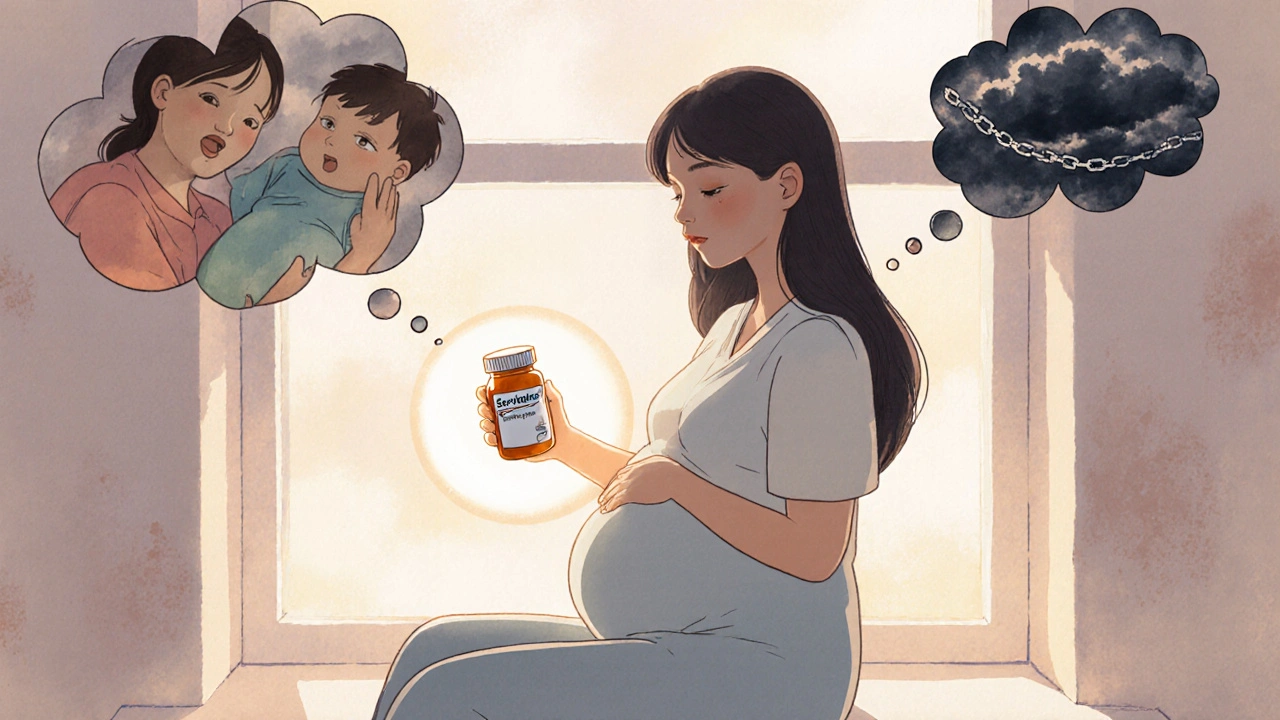When you're pregnant and struggling with depression or anxiety, sertraline, a selective serotonin reuptake inhibitor (SSRI) commonly prescribed for depression and anxiety disorders. Also known as Zoloft, it's one of the most studied antidepressants for use during pregnancy. But is it safe? That’s the question so many women ask—often in silence, scared of making the wrong choice. The truth isn’t black and white. While no medication is risk-free during pregnancy, sertraline has more data behind it than most, and many doctors consider it a first-line option when treatment is needed.
Studies tracking thousands of pregnancies show that sertraline doesn’t significantly raise the risk of major birth defects. Unlike some other SSRIs, it’s not strongly linked to heart problems in newborns. That’s why the American College of Obstetricians and Gynecologists and the National Institute for Health and Care Excellence both list it as a preferred choice for pregnant women needing antidepressants. Still, there are smaller risks to weigh. Some babies exposed to sertraline late in pregnancy may have temporary symptoms like jitteriness, feeding trouble, or mild breathing issues—usually gone within days. And while the link to persistent pulmonary hypertension (PPHN) is rare and debated, it’s something your doctor will talk through with you.
It’s not just about the baby. Untreated depression during pregnancy carries real dangers too: higher chances of preterm birth, low birth weight, and even complications after delivery like postpartum depression. For many women, staying on sertraline means staying stable—able to eat, sleep, connect with their partner, and prepare for motherhood. Stopping suddenly can trigger withdrawal or a relapse, which often hurts both mom and baby more than the medication itself. The key? Work with a provider who knows the data, listens to your fears, and helps you make a personalized call—not a generic one.
What about breastfeeding? Sertraline passes into breast milk in very small amounts, and studies show most nursing babies show no side effects. In fact, it’s often the SSRI of choice for new moms who want to keep breastfeeding while managing their mental health. And if you’re worried about long-term effects on your child’s development? So far, follow-up studies up to age 7 show no major differences in behavior, learning, or language between kids exposed to sertraline in utero and those who weren’t.
There’s a lot of noise out there—blogs, forums, fear-driven headlines. But what you really need is clear, calm, evidence-based info. Below, you’ll find real posts from doctors, pharmacists, and moms who’ve been there. They break down what the studies actually say, compare sertraline to other options like Diclegis, a pregnancy-safe nausea medication often used alongside mental health treatment, explain how antidepressants, a class of medications including SSRIs like sertraline, used to treat depression and anxiety interact with prenatal care, and share what to watch for after birth. No hype. No fearmongering. Just facts you can use to feel more in control.

SSRIs during pregnancy carry small risks, but untreated depression poses greater dangers. Learn which antidepressants are safest, what the real data says about birth defects and long-term outcomes, and how to make the best choice for you and your baby.
View more